第33章 Letter XXIV(1)
Accordingly three different moments or stages of development can be distinguished,which the individual man,as well as the whole race,must of necessity traverse in a determinate order if they are to fulfil the circle of their determination.No doubt,the separate periods can be lengthened or shortened,through accidental causes which are inherent either in the influence of external things or under the free caprice of men;but neither of them can be overstepped,and the order of their sequence cannot be inverted either by nature or by the will.Man,in his physical condition,suffers only the power of nature;he gets rid of this power in the aesthetical condition,and he rules them in the moral state.
What is man before beauty liberates him from free pleasure,and the serenity of form tames down the savageness of life?Eternally uniform in his aims,eternally changing in his judgments,self-seeking without being himself,unfettered without being free,a slave without serving any rule.
At this period,the world is to him only destiny,not yet an object;all has existence for him only in as far as it procures existence to him;a thing that neither seeks from nor gives to him is non-existent.Every phaenomenon stands out before him,separate and cut off,as he finds himself in the series of beings.All that is,is to him through the bias of the moment;every change is to him an entirely fresh creation,because with the necessary in him,the necessary out of him is wanting,which binds together all the changing forms in the universe,and which holds fast the law on the theatre of his action,while the individual departs.It is in vain that nature lets the rich variety of her forms pass before him;he sees in her glorious fullness nothing but his prey,in her power and greatness nothing but his enemy.Either he encounters objects,and wishes to draw them to himself in desire,or the objects press in a destructive manner upon him,and he thrusts them away in dismay and terror.In both cases his relation to the world of sense is immediate contact;and perpetually anxious through its pressure,restless and plagued by imperious wants,he nowhere finds rest except in enervation,and nowhere limits save in exhausted desire.
"True,his is the powerful breast and the mighty hand of the Titans.
...A certain inheritance;yet the god welded Round his forehead a brazen band;Advice,moderation,wisdom,and patience,Hid it from his shy,sinister look.Every desire is with him a rage,And his rage prowls around limitless."-Iphigenia in Tauris.
Ignorant of his own human dignity,he is far removed from honouring it in others,and conscious of his own savage greed,he fears it in every creature that he sees like himself.He never sees others in himself,only himself in others,and human society,instead of enlarging him to the race,only shuts him up continually closer in his individuality.Thus limited,he wanders through his sunless life,till favouring nature rolls away the load of matter from his darkened senses,reflection separates him from things,and objects show themselves at length in the after-glow of the consciousness.
It is true we cannot point out this state of rude nature as we have here portrayed it in any definite people and age.It is only an idea,but an idea with which experience agrees most closely in special features.
It may be said that man was never in this animal condition,but he has not,on the other hand,ever entirely escaped from it.Even in the rudest subjects,unmistakable traces of rational freedom can be found,and even in the most cultivated,features are not wanting that remind us of that dismal natural condition.It is possible for man,at one and the same time,to unite the highest and the lowest in his nature;and if his dignity depends on a strict separation of one from the other,his happiness depends on a skilful removal of this separation.The culture which is to bring his dignity into agreement with his happiness will therefore have to provide for the greatest purity of these two principles in their most intimate combination.
Consequently the first appearance of reason in man is not the beginning of humanity.This is first decided by his freedom,and reason begins first by making his sensuous dependence boundless;a phaenomenon that does not appear to me to have been sufficiently elucidated,considering its importance and universality.We know that the reason makes itself known to man by the demand for the absolute -the self -dependent and necessary.But as this want of the reason cannot be satisfied in any separate or single state of his physical life,he is obliged to leave the physical entirely and to rise from a limited reality to ideas.But although the true meaning of that demand of the reason is to withdraw him from the limits of time and to lead him up from the world of sense to an ideal world,yet this same demand of reason,by a misapplication -scarcely to be avoided in this age,prone to sensuousness can direct him to physical life,and,instead of making man free,plunge him in the most terrible slavery.